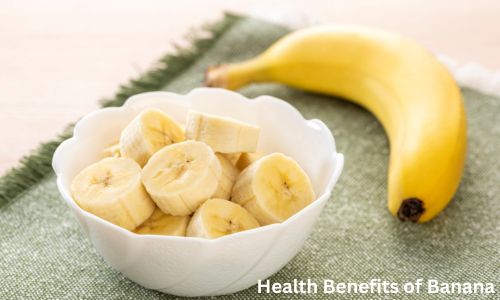What are the health benefits of bananas? Both healthy and delicious, bananas are a fruit. Both ripe and unripe bananas have health benefits. Everyone knows about the nutritional value of bananas to maintain good health. It is very important in intestinal health. However, eating bananas regularly has many other benefits that many people do not know.
See also: Health Benefits of Carrots
Health Benefits of Banana
You will know some benefits of banana that will surprise you. Bananas are quite beneficial for a human body and after knowing about them, you will probably be more interested in eating bananas. Then find out from below.
-
Eliminates nutritional deficiencies
The body needs certain amounts of vitamins every day to keep it functioning. Bananas are a great source of vitamins B6 and C. Vitamin B6 from bananas is easily absorbed in the blood. Vitamin B6 helps in the production of red blood cells in the human body. Helps metabolize carbohydrates and fats, turning them into energy.
-
Eliminates constipation
People who have constipation problem should eat ripe banana. It helps to cleanse the stomach as it contains fiber. You will benefit from eating kanchkala if you have an upset stomach. Vitamin C, minerals, and potassium are all abundant in bananas.
-
Increases weight
It is also suggested that overweight people eat bananas. More calories are found in bananas than in other fruits. Too much carbohydrates in the diet should be avoided by those who are obese or have heart issues. They can also eat bananas as an alternative.
-
Strengthens bones
Bananas can guarantee strong bone formation. Because bananas contain fructolycosaccharides which are a type of prebiotic that eventually become probiotics. Prebiotics are carbohydrates that the body does not digest. Banana strengthens bones by increasing absorption of calcium.
-
Cardiovascular protection
Bananas provide cardiovascular protection in several ways. Bananas contain potassium, and potassium lowers blood pressure. Banana acts as a vasodilator, reducing the tension of arteries and veins, smoothing the flow of blood through them and improving their function by delivering oxygen to various organs.
-
Reduces obesity
You can satisfy your sweet tooth by eating bananas. An average banana contains only 90-110 calories. So bananas help in weight loss. Bananas contain a lot of fiber and are easily digested. Moreover, bananas do not contain any fat. Eating bananas keeps the stomach full. Because bananas inhibit the release of the hunger-inducing hormone ghrelin.
-
Improvement of mood and mental health
Bananas are known to possess natural mood-boosting properties. They contain tryptophan, an amino acid that is converted in the body to serotonin, a neurotransmitter responsible for regulating mood and promoting feelings of happiness and well-being. Eating bananas can help fight mood disorders like depression and promote feelings of calmness and relaxation.
Risk Factors of Eating Bananas
There are some factors that will prevent you from doing so.
- Bananas have a relatively high glycemic index, which means they can raise blood sugar levels quickly. Those with diabetes or following a low-sugar diet should moderate their banana intake and consult a health care professional for personal guidance.
- Although calories come from natural sugars and carbohydrates, people aiming to lose or maintain weight should be aware of their overall calorie intake, including calories from bananas.
- Although rare, some individuals may have an allergic reaction to bananas. Symptoms can range from mild itching or swelling to more serious reactions such as difficulty breathing or anaphylaxis.
Conclusion
Bananas should not be eaten with heavy meals. Eat bananas one to one and a half hours after meals. Bananas are rich in fiber. Fiber can be easily absorbed by the body if played during this time interval.
Direct banana consumption is not preferred by many people. Banana smoothies can then be prepared and consumed. Fruit smoothies can also include bananas as an ingredient. Banana and oat smoothies are another option.





